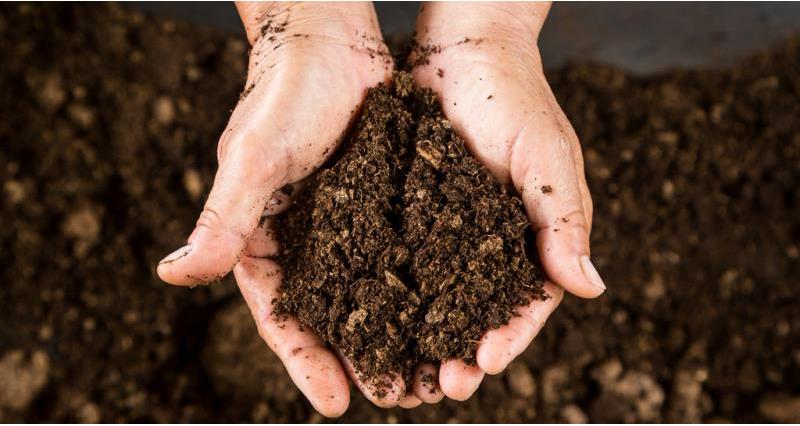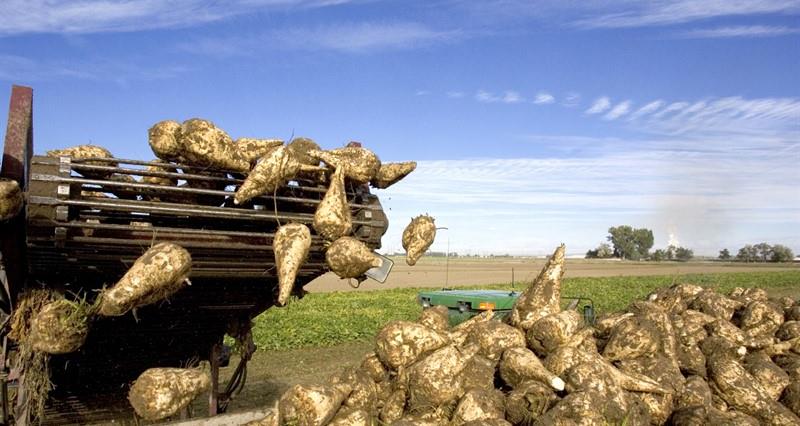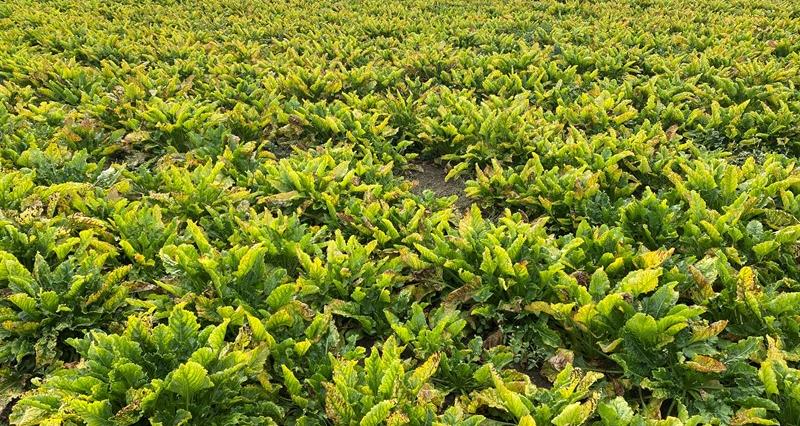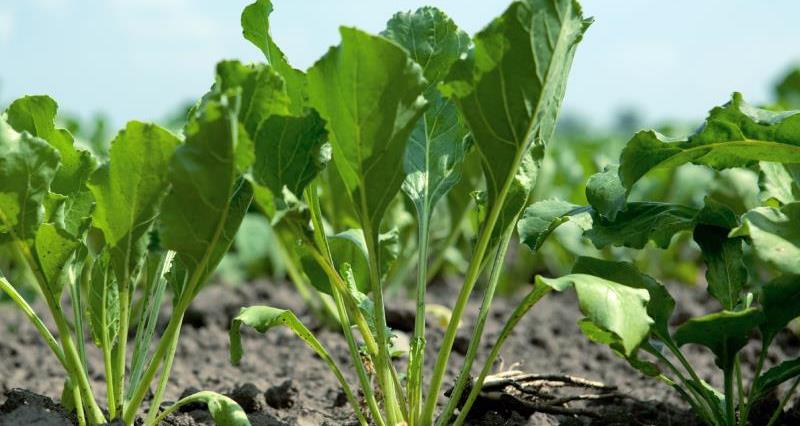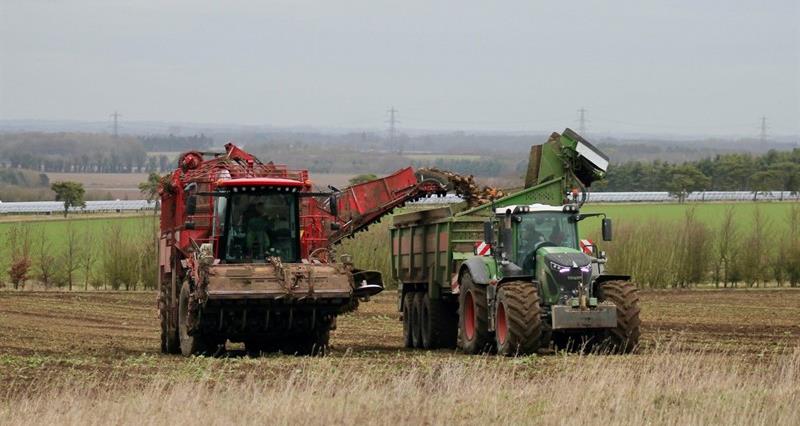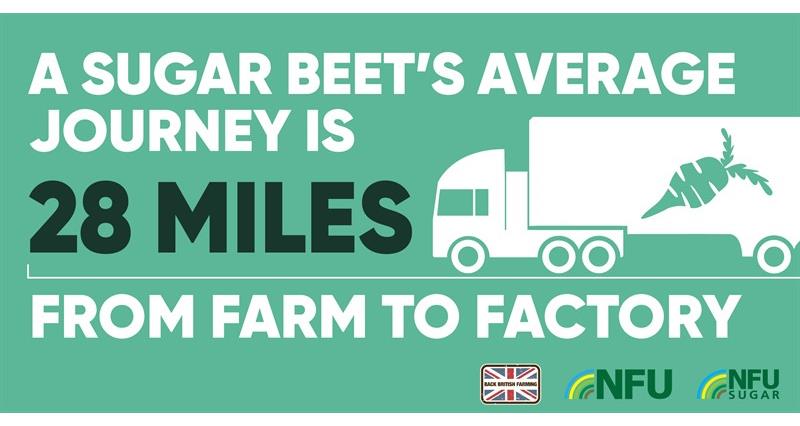On this page
- Does sugar beet production damage soil?
- How much is lost during the harvesting process?
- Learn about different soil types
Does sugar beet production damage soil?
As sugar beet is harvested during the winter, when the ground is often much wetter, there is the potential for greater soil damage than when harvesting summer crops. Soil is a farmer’s greatest asset, so growers mitigate soil damage by carefully selecting when they harvest their sugar beet crop in relation to their soil type. For example, clay soils and ‘heavier land’ will be harvested earlier in the campaign. ‘Lighter’ sandy soils do not retain as much water in the soil, so can be harvested during the winter.
Farmers take many measures to manage their soil nutrients and structure, subsequently taking steps to mitigate any impact of agricultural production on their land:
- Sugar beet is an essential crop for many farmers and plays a positive role as a ‘break crop’ within crop rotations. A break crop is sown to provide diversity to help reduce disease, pest and weed levels and improve soil health.
- Sugar beet also returns a large amount of organic matter to the soil as the sugar beet leaves are left on the land following the crop harvest. The sugar beet leaves can then be incorporated into the soil, helping to build up soil carbon and organic matter reserves, an essential part of healthy soil.
- Machinery is continuously improving to reduce compaction and reduce soil losses within the harvesting process, and growers invest in machinery to mitigate soil damage. Wider tyres are used on sugar beet harvesters to disperse the load and sugar beet harvesters can ‘crab’ their tyres to further spread the weight of the machine over the land to reduce compaction.
- Growers are supported by agronomists and the industry-funded BBRO to protect and improve soil conditions. Farmers are always using the latest information and the industry is continuously investing in the latest research to help improve soil conditions.
How much soil is lost during the harvesting process?
Soil attached to sugar beet is often carried into the processing factories. How much depends on the type of soil and weather conditions. As soil is a farmer’s greatest asset they minimise this by investing in the latest harvesting machinery and using cleaner/loaders.
Any soil that does enter British Sugar factories is recycled into high-quality topsoil used for a variety of purposes, including landscaping and sports grounds.
Sugar beet provides soil with organic matter as the harvest process returns organic matter (mainly leaves) to the field. Before leaving the field, beet is cleaned using a cleaner loader, so the soil loss is minimised to soil stuck in crevices on the beet (called the dirt tare).
See also, our information on sugar beet and waste.
Learn about different soil types
Sugar beet is grown on some of the most productive land in the UK, which maximises the yield achieved. Farmers work with the weather and grow sugar beet on soils that lend themselves to the successful and efficient harvesting of beet during the winter.
Managing harvesting timings for different soil types and being mindful of harvesting conditions limits the impact of winter harvesting on sugar: Lighter soils can be easier to clean from the beet during the harvest than some other soil types, reducing the dirt tare.
In some cases, as with lowland peat soils, harvesting is criticised because of the release of carbon from the soil and soil erosion. Here farmers are using techniques such as cover crops to control the erosion and stabilise the soil as the beet gets established. As above, all growers want to protect their soils. See what NFU Sugar board net zero representative Tom Clarke is doing to manage peat soils.
Sugar beet leaves improve the organic content of Fenland-type soil, which is often already naturally high in organic matter.
The industry invests over £2 million annually in the British Beet Research Organisation (BBRO) to improve every aspect of our agricultural practices and supply chain.
